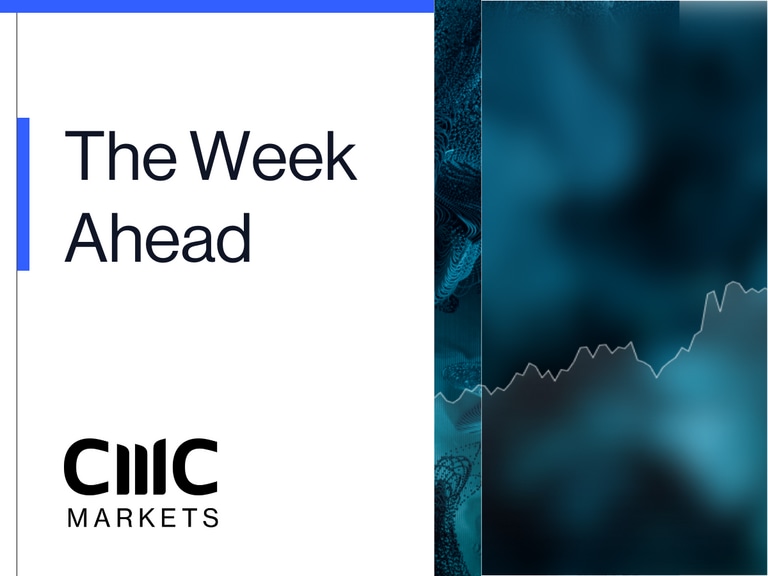
After a negative start, which saw the FTSE 100 and DAX slide to one-week lows on disappointing services PMI numbers, European markets have managed to recover from the lows of the day, with the FTSE 100 trying to rebound into positive territory helped by a strong performance from the energy sector.
Europe
This came about in the wake of Saudi Arabia and Russia announcing they would be extending their output cuts into year end, pushing Brent crude oil prices back above $90 a barrel for the first time since November last year, giving a lift to BP and Shell in the process. Oilfield services company WeirGroup is also higher.
The biggest losers today have been in the retail sector after JPMorgan Chase cut its ratings on the likes of Tesco, B&M European Retail, and the rest of the grocery sector on expectations that falling food prices will start to impact on retailer margins. B&M is also in the news after it acquired 51 Wilko stores for £13m.
International equipment rental companyAshteadhas been one of the better performers on the FTSE100 this year, however today’s Q1 numbers have seen the shares fall back sharply, despite beating forecasts on revenues, which came in at $2.7bn, helped by a strong performance in its US market, although the company warned that the Hollywood strikes were acting as a bit of a headwind.
The company did warn that UK revenue would be slightly weaker than expected while keeping the outlook for the US and Canada unchanged. This tweak lower in UK revenue has been blamed for today’s share price weakness, which seems somewhat of an over-reaction given what a small proportion the UK contributes to the wider revenue numbers. In Q1 UK revenue accounted for $225m, of the total $2.7bn, while Canada accounted for $159.7m, a number that is mere pocket change compared to its US business.
Pretax profit came in at $585m, an increase of 11% with the company keeping its full year guidance unchanged.
US
US markets opened slightly lower even as European markets rebounded off their lows of the day with disappointing services PMIs for August serving to weigh on investor appetite for risk, as US investors return from their long weekend.
We’ve found out more details about next week’s ARM listing with the valuation coming in between $47 and $51 a share, valuing the business between $51bn and $54bn, quite a bit lower than was expected, although the number is higher than the sum Nvidia was prepared to pay when it bid for the business back in 2020, with the deal collapsing in February 2022.
SoftBank will still own over 90% of ARM with next week’s IPO set to raise up to $5bn which rather makes you wonder why they are bothering, given shareholders will have little to no say in how the business is being run.
Manchester United shares have dropped sharply on reports that the Glazer family have pulled plans to sell the club.
Nikola shares have fallen sharply on reports that another of its trucks caught fire on Monday, the third such incident in the last few months.
FX
There was good news for the UK economy today after BRC retail sales for August rebounded after a slowdown in July, with total sales rising 4.3%, up from a 1.8% rise in July, with food, drink and health and beauty all performing well. This hasn’t stopped the pound sinking to its lowest levels since June against the US dollar which has outperformed across the board today, with the US dollar index rising to its highest level since March, and USD/JPY rising to its highest levels this year.
The greenbacks biggest gains have been against the commodity currencies with the Australian dollar amongst the worst performers after the RBA left rates unchanged and the Caixin services sector PMI for China slipped to its lowest level this year last month.
The outperformance of the US dollar is coming against a backdrop of rising optimism about the prospects for the US economy, which prompted Goldman Sachs to say that the prospect of a recession in the US has dropped to a 15% probability in its opinion.
Such an outlook doesn’t speak to the prospect of imminent rate cuts, unlike the situation in Europe where we’ve seen another set of disappointing PMIs, this time from the services sector as Spain and Italy follow German and France into contraction territory.
If the ECB does raise rates next week it will be against a backdrop of increasing economic weakness, at a time when input prices have started to rise again, according to today’s PMIs. That isn’t an appealing prospect, with further rate hikes likely to make a bad situation worse, with the euro slipping to its lowest levels since early June.
Commodities
There was bad news on the inflation front, and for consumers in general after Saudi Arabia and Russia confirmed that they would be extending their output cuts which started in July, into year end, pushing Brent crude oil prices above $90 a barrel for the first time since November last year. We’re already seeing the impact of this trend in higher input prices in today’s PMI numbers pointing to the prospect that inflation is likely to remain sticky in the weeks and months ahead.
The continued resilience in US yields, along with the firmer US dollar has served to pull gold prices down from their one-month highs of last week. If, the US economy does in fact avoid a recession as predicted by Goldman Sachs then the upside for gold prices could well find itself limited by the resilience in US yields.
Volatility.
With US markets closed for the Labor Day holiday, price action was severely limited on Monday. As is typically the case however, pockets of exaggerated volatility were in evidence, with a specific focus being seen at the stock specific level.
Those stimulus measures out of Beijing continued to benefit select equities as the new trading week got underway, with Chinese banks finding favour amongst investors. Meaningful gains for the underlying in early trade saw one day vol on ICBC advance to 57.8% against 43.55% for the month, whilst the pattern was repeated at Bank of China where one day vol printed 60.39% compared with 39.23% for the month.
In keeping with that theme of hopes China’s economy can rebound, a number of Australian listings of mining stocks also found favour. BHP advanced to one-month highs, with one day volatility coming in at 33.28% against 28.08% on the month. Rio Tinto found similar support, but it wasn’t all one-way traffic for the sector however with another high-profile director resignation from Fortescue Metals knocking sentiment here. One day vol sat at 58.54% against 46.41% for the month.
In other asset classes, volatility was notable by its absence although with US markets returning after the summer lull today, any respite here is likely to be short lived.
Disclaimer: CMC Markets is an execution-only service provider. The material (whether or not it states any opinions) is for general information purposes only, and does not take into account your personal circumstances or objectives. Nothing in this material is (or should be considered to be) financial, investment or other advice on which reliance should be placed. No opinion given in the material constitutes a recommendation by CMC Markets or the author that any particular investment, security, transaction or investment strategy is suitable for any specific person. The material has not been prepared in accordance with legal requirements designed to promote the independence of investment research. Although we are not specifically prevented from dealing before providing this material, we do not seek to take advantage of the material prior to its dissemination.























